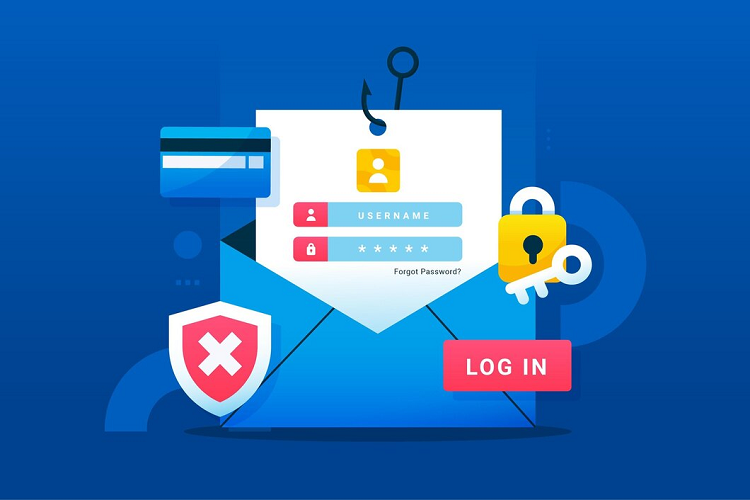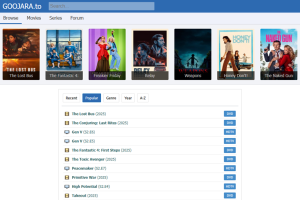In the modern era of technology, emails play a significant role in contemporary commercial communication. Cheap legal documents that may be used in any official setting have emerged as the most popular means of distribution nowadays. Email usage is widespread across all industries, including IT, BPO, insurance, and hospitality.

On the other hand, emails are a major contributing factor to many cyberattacks that occur nowadays, including spear phishing, phishing, spoofing URLs, trojans, and installing dangerous scripts and attachments.
Nonetheless, as the dependency and increasing usage of email, cyber attackers are more active to gain access of your private information. These malicious intrusions can lead to terrible impacts like theft of confidential data, financial harm, and destroying a company’s reputation.
12 Ways to Prevent Your Email from Cyberattacks
Safeguarding your email from such cyber threats is paramount. Let’s delve into practical ways to prevent your email from cyberattacks.
1. Create strong password
Making secure passwords is one of the best defenses against online attacks on your email account. Cybercriminals find it more difficult to decipher or guess a strong, complex password.
On the other hand, creating a weak password is equivalent to giving hackers access to your personal and work data. Steer clear of obvious words or phrases while creating a strong password. In addition to lengthy strings, employ letters and digits. The Email also should be convenient for you to remember.
2. Train your staff
Phishing, URL spoofing, and social engineering are some of the tactics hackers use to create harmful emails that appear harmless. Serious security breaches may result upon downloading or clicking the malicious attachments and links in these emails.
Cyberattacks are prevented for your company when you train staff members and expose them to such threats. It is easier to teach your staff how to avoid falling for email scams such as phishing and vishing by simulating fictitious attacks.
3. Stay away from public Wi-Fi
When you use a public Wi-Fi network, you risk being hacked by someone who may be using the same network to collect data from all connected users. These online crooks might use the stolen data to trick you into providing more private or professional financial or work-related information. It is critical to keep your email account secure.
4. Avoid sharing too much information
A court of law can use any personal details against you, including your birthday, your cat’s name, the schools you have attended, and family members. Yet, only some individuals would consider publishing such private information on social media.
Though it normally seems harmless, it may not be. However, when trying to build a rapport for themselves, malevolent hackers can take this material off a platform or scrape it.
5. Update regularly
Ensure your computer and other gadgets are current, which should always be your priority. To achieve this, ensure antivirus software is installed on your computer, install application updates as prompted by your system, and routinely check for operating system upgrades.
You can stay safe when using the internet by keeping everything current. Most developers update their software to thwart the latest hacking attempts.
6. Limit the power of the administrator
End-to-end encryption may not protect communications during administration, even though it lowers server-level breaches. Insider threats can quickly breach an administrator account with conventional security policies through targeted hacking or phishing operations.
Limiting administrator account privileges can prevent privilege escalation attacks and protect the email implementation from dubious third-party intervention.
7. Implement an email security solution
You get what you pay for, as the cliche goes, is true. Investing in strong email security works far better than using a free solution that might only address some email security issues.
To address your email security-specific problems, it is preferable to seek help from cybersecurity professionals with the necessary knowledge and experience.
8. Be cautious when phishing
Even though email security programs block many spam emails from reaching a user’s inbox, some spam still makes it through and may contain increasingly complex phishing techniques.
These may consist of spear phishing, whaling, or conventional phishing emails. Users should exercise caution when opening potentially dangerous emails and be alert for phishing scams. Never open attachments from suspicious emails, click links, reply to, or open them.
An increasing number of companies are incorporating phishing awareness training into their security awareness training curricula to assist staff in identifying questionable messages and to educate them on how to avoid opening the wrong attachments or clicking on the wrong links.
9. Two-factor authentication
To further safeguard oneself against hackers, consider utilizing two-factor authentication. To increase security, two-factor authentication adds a stage to the login process where users must utilize authenticator applications or text messages to receive a code. Knowing if someone else is attempting to access your accounts is helpful.
10. Make a backup copy of all your private information
Back up your sensitive information assets regularly to prevent losing them to cybersecurity thieves. In addition to assisting you in damage management, it will increase your awareness of all the private data that needs to be protected.
11. Never click on unknown links in emails
Email links that appear to be hyperlinks frequently go to a different web address. A user may be directed to a malicious domain via some links that appear to be from a well-known domain name. Malicious domains that mimic well-known brand names are also created by attackers using misspellings or international character sets.
Always hover the mouse pointer over the link to verify its contents and ensure that the displayed link is identical to the actual link. Although most contemporary email programs should detect such links, even this can be faked. To avoid clicking email links, type domains into browsers when in doubt.
12. Making use of proxies
Employers and employees can both benefit from using proxies to access websites. Employees can protect the privacy of their location data by utilizing a proxy. They don’t have to worry about website cookies following them while researching. The benefits of anonymous web browsing extend to employers. Without their knowledge, they may easily monitor their employees’ internet activities.
Partial words
Cyberattacks through email are becoming more frequent every day. Cybercriminals are always coming up with new ways to break into security systems. Users clicking on malicious emails have been the cause of the majority of breaches that have occurred thus far.
As a result, to safeguard your company, you must secure your sensitive data by protecting your emails and implementing ongoing measures to prevent your email from cyberattacks. Safeguarding your dependable clients’ information is essential, as is your business duty.


